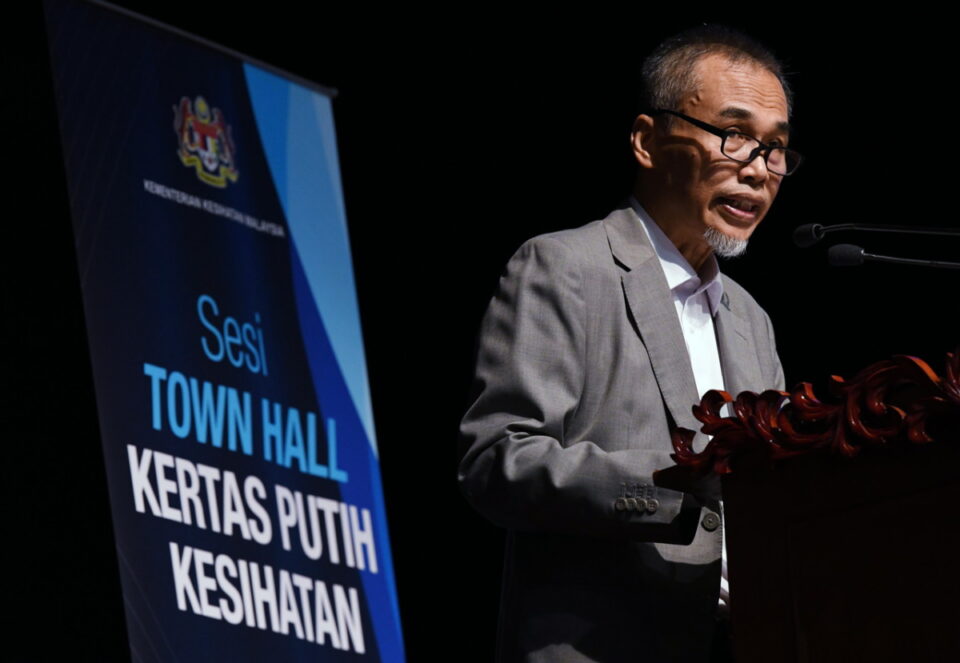KUALA LUMPUR, July 29 — Changes to the Medical Act 1971 represent a key step in rectifying inconsistencies and addressing issues from the 2012 amendments, and are aimed at enhancing medical training governance and specialist registration.
Health director-general Datuk Dr Muhammad Radzi Abu Hassan said the new provisions, oversight mechanisms and Schedules 4 and 5 are designed to ensure greater clarity, transparency, and accountability within the medical profession.
Dr Radzi, who is also Malaysian Medical Council (MMC) president, said the amendments also reflect the government’s trust in MMC as a regulatory body.
“These amendments provide a clear outline of the requirements for inclusion in the Specialist Register, and the inclusion of post-qualification work experience and competencies in Section 14B of the act reflect the Health Ministry’s commitment to maintaining high standards in medical training and specialist services.
“It is hoped the amendments will lead to better healthcare outcomes and improve the quality of training for medical professionals, ultimately ensuring greater patient safety,” he said in a statement today.
In this regard, Dr Radzi welcomed the amendments to the act, approved by the Dewan Negara today.
“With these amendments, I am hopeful the medical profession will advance towards a new chapter in Malaysia, with all parties working together to address the urgent need for specialists without compromising quality,” he added.
He also expressed hope that newly registered specialists will use their skills and expertise to serve the nation, particularly the underprivileged.
Earlier, the Medical (Amendment) Bill 2024, which grants MMC powers to recognise qualifications and specialist training for medical registration, was passed by the Dewan Negara after being debated by 14 senators.
The role of the Malaysian Qualifications Agency (MQA) will not be disrupted after amendments to the act are implemented, said Health Minister Datuk Seri Dr Dzulkelfy Ahmad.
He said the agency will remain the accreditation body for medical master’s courses, responsible for evaluating applications from universities.
He addressed concerns the MQA’s role might be diminished due to the amendments to the act, clarifying that such claims were unfounded.
“MQA will continue to serve as the accreditation body for medical master’s degree programmes, a key responsibility which ensures that these programmes are listed in the Malaysian Qualifications Register for approval.
“The MQA Act (2007) itself stipulates professional programmes (including the parallel pathway programme), are not subject to MQA accreditation,” he said when winding up the debate on the Medical (Amendment) Bill 2024, in the Dewan Negara today.
He also addressed concerns about the rejection of dental applications that did not meet the requirements of the Dental Act 2018. He noted that three applications, registered in the National Specialist Register of Malaysia (NSR), are under appeal.
“At the 14th MMC meeting under the Dental Act 2018 this morning, the council agreed to allow appeals from dental practitioners registered with the NSR to be considered for approval based on the scope of practice determined by the MMC, with a decision expected by the end of September,” he said.
— Bernama





